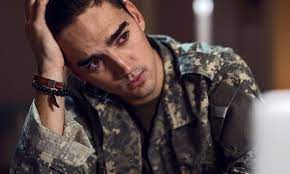![]()
You quit coffee, tea and chocolate! You put up black out curtains and got rid of all the screens in your bedroom. You even tried counting sheep. But still you find yourself lying awake, unable to sleep. Sleep Hygiene tips help many people. But they don’t work all the time and they don’t work for everybody — especially if you have been experiencing sleep problems for a long time.
Sleepless nights are not uncommon, but if they persist for weeks at a time and impact your life, it could be that insomnia, nightmares or other sleep problems are affecting your well-being. Insomnia after returning from deployment is one aspect of military service that relates to sleep problems. Training to be alert through the night, working extended shifts and upsetting memories from combat zones can all affect sleep, even after separating from service. This means that if you are a veteran, you are more likely to have trouble sleeping than civilians.
Treatment is key to improving both your physical and mental health
Sleep problems often occur with PTSD, depression, anxiety and chronic pain, and can lead to trouble concentrating, challenging emotions, and a feeling of hopelessness that could worsen thoughts of suicide. So, it’s a good idea to talk to your doctor early, when you first notice changes in your sleep that impact your functioning. Proven treatments for insomnia are more effective than sleep medications in the long-term without the side effects.
“Cognitive Behavioral Therapy for Insomnia, CBT-I, targets behaviors and thoughts that perpetuate sleep
Views: 93



